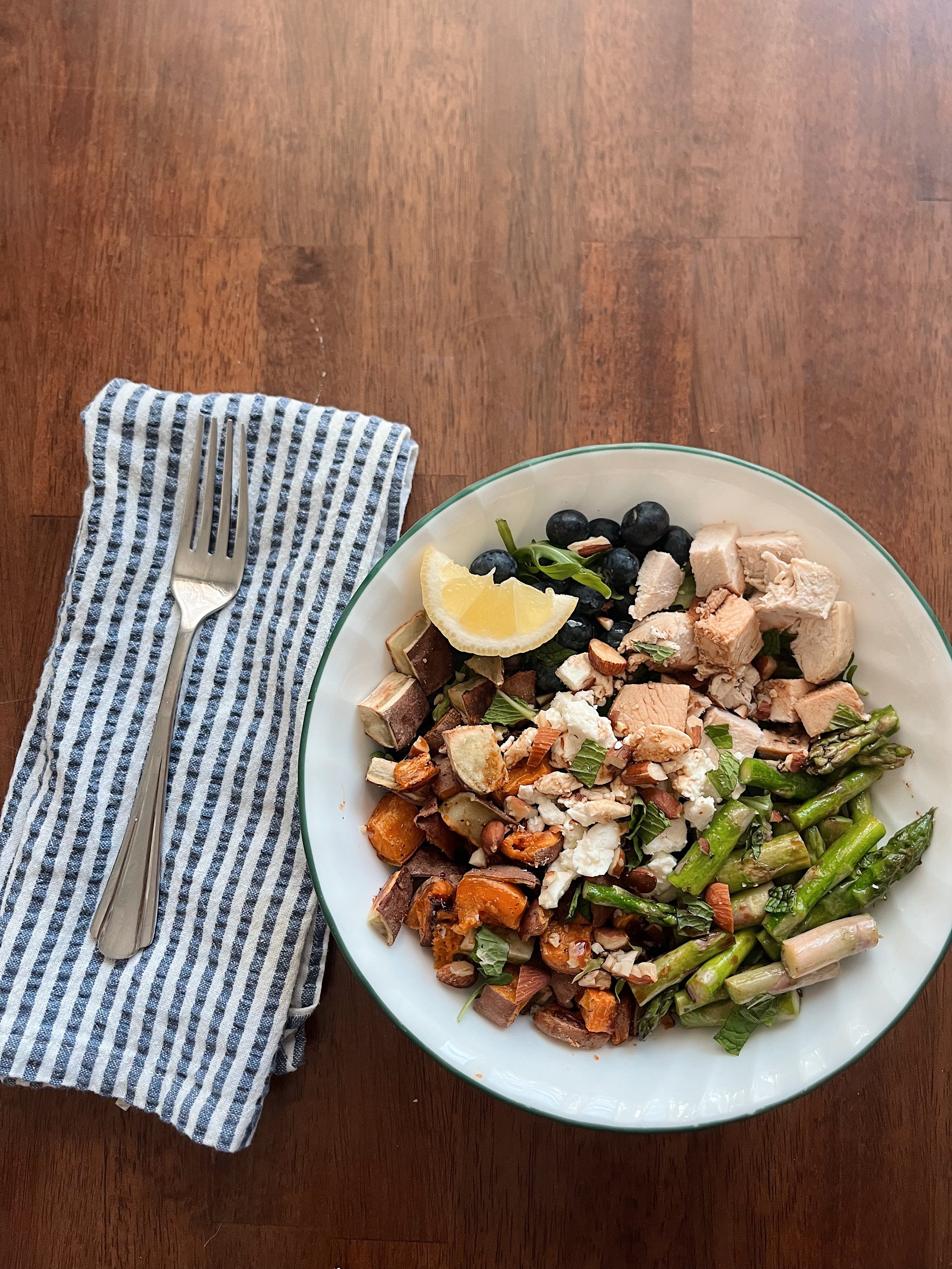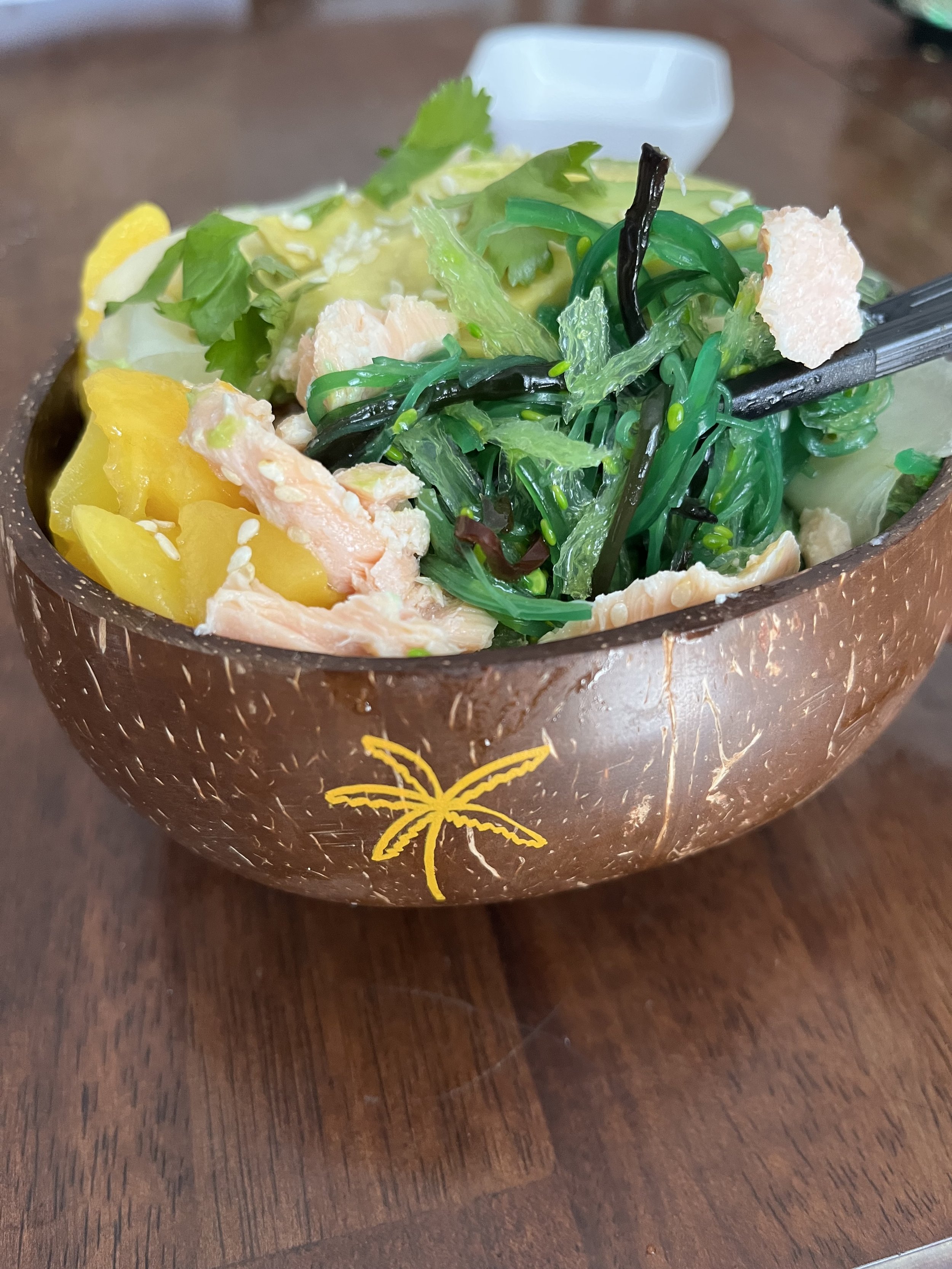Plastic Free July!
In our fast-paced, convenience-driven world, plastic has become an omnipresent part of our daily lives. From water bottles to food packaging, it's hard to imagine a day without encountering some form of plastic. However, the pervasive use of plastic has significant implications not just for our environment but also for our health and nutrition. By making a conscious effort to reduce plastic usage, you can pave the way for a healthier, more nutritious lifestyle. Here’s how:
1. Embrace Fresh, Whole Foods
One of the simplest ways to reduce plastic is to steer clear of pre-packaged, processed foods. These items often come wrapped in multiple layers of plastic, contributing to environmental waste and exposing you to harmful chemicals like BPA and phthalates, which can leach into food. By opting for fresh, whole foods, you not only cut down on plastic but also enhance your diet with nutrient-rich options. Fresh fruits, vegetables, nuts, seeds, and grains provide essential vitamins, minerals, and antioxidants that are often stripped away in processed foods.
2. Shop at Farmers’ Markets
Farmers’ markets are a fantastic resource for fresh, locally grown produce that typically involves minimal packaging. By shopping at these markets, you support local farmers and reduce your carbon footprint. Moreover, the produce you find at farmers' markets is often picked at peak ripeness, ensuring superior nutritional quality and taste compared to many supermarket options.
3. Cook at Home More Often
Dining out or ordering takeout often results in significant plastic waste, from containers to utensils and straws. Cooking at home allows you to control not only what goes into your meals but also how they are stored. Use glass containers, stainless steel, or other sustainable options for storing leftovers. Home-cooked meals often contain fewer preservatives and additives, leading to a healthier diet overall.
4. Choose Natural, Sustainable Packaging
When you do need to buy packaged foods, opt for items in glass, paper, or metal containers, which are generally safer for food storage and more environmentally friendly. For example, choose pasta in cardboard boxes over plastic bags or milk in glass bottles instead of plastic jugs. These choices can help reduce your exposure to harmful chemicals associated with plastic packaging.
5. Grow Your Own Food
Starting a small garden, even if it's just a few herbs on your windowsill, can significantly reduce your reliance on plastic-packaged foods. Growing your own vegetables and herbs ensures that you have access to fresh, nutrient-dense produce right at your fingertips. Plus, gardening can be a rewarding and stress-relieving hobby.
6. Hydrate Smartly
Bottled water is a major contributor to plastic waste. Instead, invest in a high-quality, reusable water bottle made from stainless steel or glass. Not only does this reduce plastic waste, but it also ensures that you are not ingesting microplastics that can come from plastic bottles. Drinking plenty of clean, filtered water is essential for maintaining optimal health and nutrition. Check out this cute bottle right here!
7. Be Mindful of Food Storage
Many of us store leftovers in plastic containers out of habit. Switching to glass or stainless steel containers can prevent the leaching of harmful chemicals into your food, especially when reheating. Using beeswax wraps instead of plastic wrap is another excellent alternative that keeps your food fresh without the health risks associated with plastic.
Reducing plastic use goes beyond benefiting the environment; it directly impacts your health and nutrition. By making mindful choices about what you eat and how you store your food, you can minimize exposure to harmful chemicals and enjoy fresher, more nutritious meals. Embrace this journey towards a healthier lifestyle and a cleaner planet. Your body and the Earth will thank you for it!



